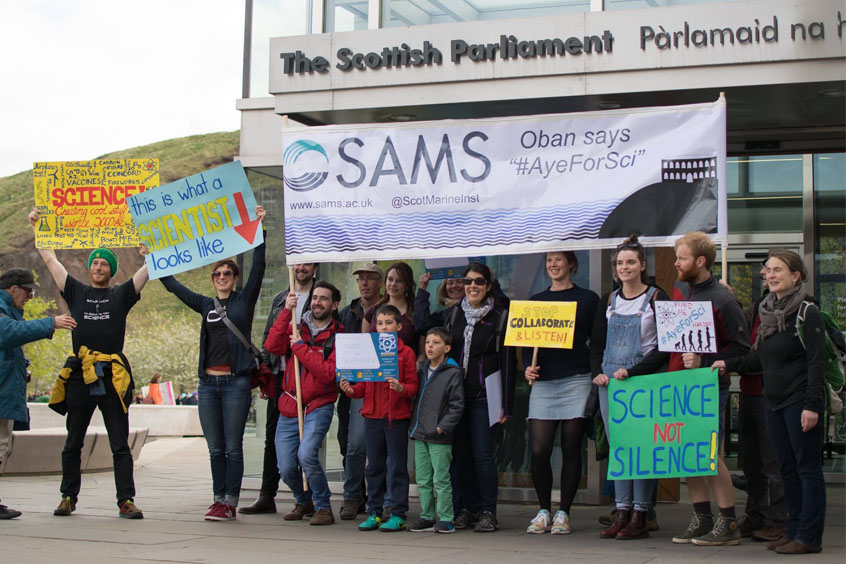SAMS news room
Staff join international March For Science

SAMS staff joined more than 2,000 people in Edinburgh to promote and defend science and research worldwide.
The March for Science last Saturday (April 22) was part of a movement to highlight the global uncertainty around research funding and saw 400 events take place in 36 countries.
The Edinburgh parade began at Waterloo Place and ended at the Scottish Parliament. A group from SAMS, including scientists, support staff and students joined the Scottish event, which carried the hashtag #AyeForSci.
SAMS marine ecologist Dr Raeanne Miller said: “People joined the march for a variety of reasons, from a desire to showcase the diversity needed in science to a show of support for our international colleagues who face an uncertain future.
“For me, I wanted to celebrate how important science is in our lives. Everything we use, our tools, our techniques are based on fundamental science. It has given us weather forecasts and the iPhone in your pocket. Like one of our signs said: Science! Creating cool stuff since 2000BC.”
A spokesperson for the March for Science in Scotland said: "We we're blown away by the huge numbers who came out to support the March for Science.
"It's fantastic to know so many people support the sciences, recognise the important role science plays in all our lives, and that political leaders and policy makers should enact evidence based policies in the public interest.
"We had scientists and non-scientists, young and old, all marching to celebrate, promote, and defend science. This is just the start, we hope everyone went home enthused to do all they can to stand up for science in the future."
Professor Anne Glover, former Chief Scientific Adviser for the President of the European Commission, spoke at the rally, saying: "I am proud to support the March for Science.
"Many of us have benefited from public funding for our research and so we have an obligation to speak out when science or evidence are misused or misquoted.
"Science helps us make sense of our world and the knowledge research generates can transform lives - if we don't speak out about its value, who will?"
